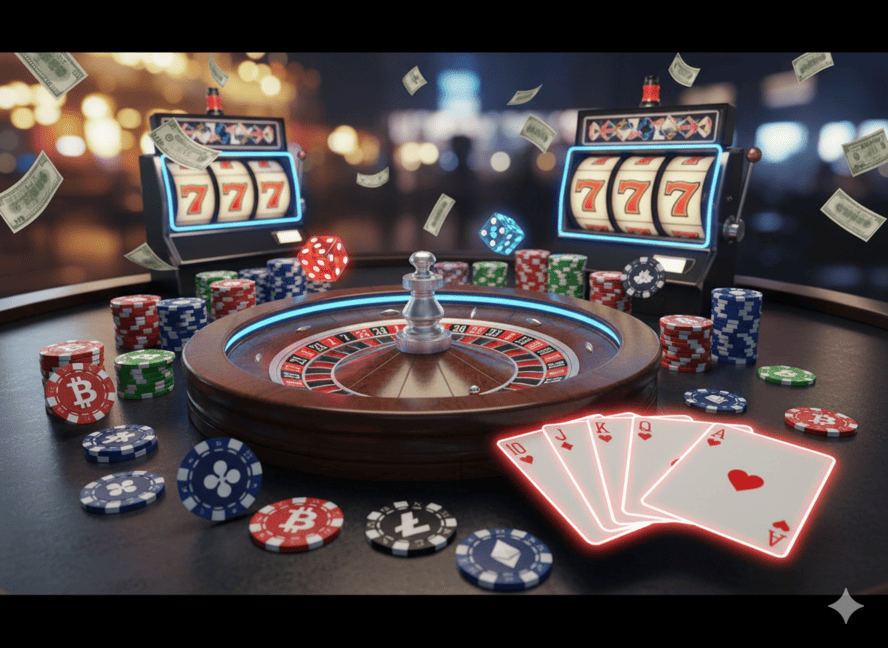Working as a live casino dealer is an experience few players truly understand, and when I explain to Greek players the nuances of live dealer tables, I always emphasize the importance of professionalism, focus, and procedural accuracy. Platforms like Rabona offer an immersive experience that is powered by the precision and dedication of live dealers. I encourage players to παίξτε τώρα στο Rabona while understanding that every hand, spin, and shuffle is managed by a highly trained professional who balances the technical and human aspects of gaming simultaneously. Observing the role from behind the camera reveals the complexity, discipline, and interpersonal skill required to create seamless live casino sessions.
A dealer’s day begins long before the first cards are dealt or the first roulette wheel spins. Preparation is meticulous: uniforms are checked, stations are cleaned and organized, and the camera, lighting, and streaming equipment are tested to ensure flawless delivery. Live dealers operate under a high-pressure environment where minor mistakes are visible to hundreds of players simultaneously. The combination of technical precision and interpersonal engagement creates a uniquely demanding professional experience.
Morning Preparation and Technical Setup
Each shift begins with technical checks. Dealers verify the functionality of the cards, chips, and tables, ensuring the integrity of gameplay. Cameras are adjusted to capture the table from optimal angles, and lighting is calibrated to prevent glare or shadow interference. Platforms like Rabona rely on high-definition streaming to transmit every detail to players, making these pre-game checks critical.
Dealers also review procedural updates. Rules, payout adjustments, and platform-specific instructions are reviewed to ensure compliance. In my experience, even subtle changes in betting limits, bonus features, or interface updates must be fully understood to maintain operational accuracy. Failure to comply can disrupt both fairness and player trust, highlighting the importance of a disciplined routine.
Skills and Training
Becoming a live dealer is not merely about familiarity with card or table games. Dealers undergo intensive training in mathematics, probability, and procedural protocols. For example, accurate payout calculation underpins every session. Blackjack dealers must calculate tens, adjust for split hands, and manage insurance bets fluidly. Roulette dealers must track betting patterns, verify wheel integrity, and handle chip exchanges quickly.
Human interaction is equally critical. Dealers must maintain a professional and engaging demeanor while managing a live audience. Greek players expect clear communication, fair play, and consistent behavior. Dealers develop interpersonal skills that allow them to respond to player queries, moderate table chat, and sustain engagement without bias. This dual focus on technical and social competence makes the live dealer profession uniquely complex.
Live Session Dynamics
Once the session begins, the dealer operates in a highly controlled yet dynamic environment. Players are observing in real time, and every action is scrutinized. Accuracy and speed are essential. Cards must be dealt precisely, chips counted accurately, and betting time managed efficiently.
Live dealer sessions are inherently unpredictable. Player behavior introduces variability that cannot be entirely anticipated. Some players place unconventional bets, ask clarifying questions, or respond emotionally to wins and losses. Dealers must balance procedural compliance with adaptive responsiveness, ensuring fairness while maintaining a smooth flow of play. From my experience, Greek players particularly value clarity and professionalism, creating an additional layer of expectation for dealers.
Managing Player Interaction
Dealer communication is an art form. Players across Greece expect both efficiency and engagement. Greeting players, acknowledging wins, and responding to inquiries must be performed without disrupting gameplay. Dealers must navigate multiple simultaneous interactions, balancing attention across chat windows and physical table actions.
This skill is honed over years of practice. In my observation, effective dealers integrate subtle psychological awareness: understanding when to encourage, when to correct, and when to allow players space to make decisions. The ability to maintain impartiality while fostering an enjoyable atmosphere is critical to sustaining trust and long-term engagement.
Handling Pressure and Maintaining Accuracy
High-volume sessions test a dealer’s stamina and focus. Extended periods of intense concentration, combined with the presence of cameras and active players, create a pressure-cooker environment. Mistakes can lead to financial discrepancies, complaints, or reputational damage for the platform.
Dealers employ structured routines to maintain accuracy. Regular micro-breaks, mental resets, and adherence to procedural checklists prevent fatigue from compromising performance. Platforms like Rabona provide operational support, including moderators, software assistance, and real-time monitoring, to ensure both dealer efficiency and player trust.
Behind the Camera: Technical Team Collaboration
A live dealer does not operate in isolation. Camera operators, streaming engineers, and platform moderators work in tandem to ensure seamless delivery. This coordination is continuous. Dealers must adjust to camera angles, respond to lighting adjustments, and synchronize actions with moderators who oversee chat moderation and dispute resolution.
In my experience, players often underestimate the technical orchestration behind every live table. Successful delivery combines human skill, precise equipment calibration, and real-time problem-solving. Greek players benefit from this seamless integration without necessarily seeing the complexity that supports the experience.
Fairness and Procedural Integrity
Dealers are integral to maintaining fairness. Each shuffle, deal, and chip exchange must comply with established rules. Platforms like Rabona implement live auditing, RNG verification for integrated bonus features, and transparent procedural standards to reinforce trust.
Dealers must also respond to irregularities, such as misread bets, network disruptions, or technical errors. Rapid identification and correction maintain session integrity. From my perspective, the combination of human vigilance and platform oversight ensures that live dealer sessions mirror the fairness of physical casinos while providing the convenience and accessibility of online play.
Continuous Learning and Skill Development
The role of a live dealer is dynamic. New games, updated rules, and emerging player expectations require continuous learning. Dealers frequently participate in training modules covering both procedural updates and soft skills, such as conflict resolution and effective communication.
For Greek players, this translates into consistently high-quality interactions. Dealers remain responsive, knowledgeable, and engaging, adapting to both platform evolution and player behavior. Continuous skill development is a critical factor behind the seamless execution of live sessions.
Psychological Considerations and Player Perception
Dealers influence player perception beyond mere gameplay mechanics. Confidence, poise, and engagement style affect how players perceive fairness, excitement, and session value. Subtle cues, such as tone, pacing, and acknowledgment of wins, shape the psychological experience.
Players, especially in Greece, respond positively to consistency and professionalism. This underscores the importance of dealer training, monitoring, and feedback systems. From my perspective, dealer behavior functions as both operational and psychological infrastructure for the platform.
Session Conclusion and Post-Shift Procedures
At the end of a shift, dealers engage in post-session procedures. Chips are counted and reconciled, gameplay records are reviewed, and performance metrics are analyzed. Any irregularities are reported, and feedback is integrated into training systems.
This post-session work ensures long-term integrity, procedural compliance, and continuous improvement. Platforms like Rabona leverage these insights to refine dealer performance, enhance player experience, and maintain operational reliability.
Career Insights and Industry Evolution
Working as a live dealer provides unique career insights. Exposure to technology, probabilistic systems, and player psychology creates transferable skills applicable across finance, hospitality, and gaming analytics. Dealers develop precision, communication, and problem-solving abilities in a high-stakes environment.
The industry itself is evolving. Technological advancements such as AI-assisted dealing, automated shuffle verification, and enhanced streaming capabilities are shaping future dealer roles. Greek players may experience increasingly immersive sessions, where human skill is augmented by technology to enhance fairness, efficiency, and engagement.
Conclusion
A day in the life of a live dealer combines technical precision, interpersonal skill, and procedural rigor. From preparation and technical setup to managing high-pressure sessions and post-shift analysis, dealers balance human judgment with platform-supported fairness. Greek players engaging with live tables on platforms like Rabona benefit from this seamless integration, experiencing the thrill of casino play with professional oversight.
Complexity arises from multi-layered interactions, probabilistic game management, and real-time communication, while explosiveness manifests through player variability, live outcomes, and multi-tasked engagement. Understanding this behind-the-scenes perspective allows players to appreciate the skill and discipline required to deliver fair, engaging, and responsive live casino experiences. Players who παίξτε τώρα στο Rabona access this immersive environment with confidence, knowing that professionalism, procedural integrity, and real-time oversight are continuously maintained.

